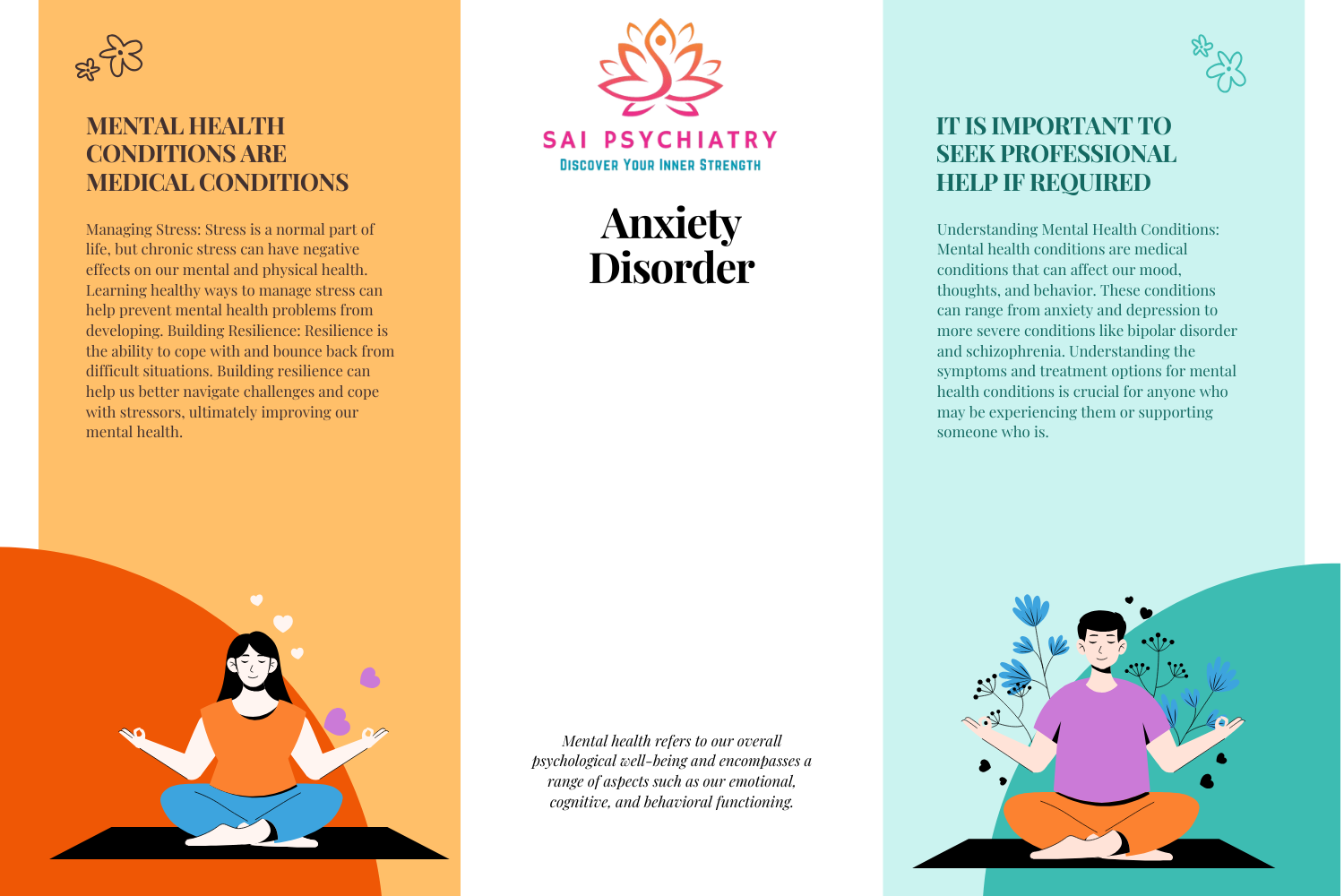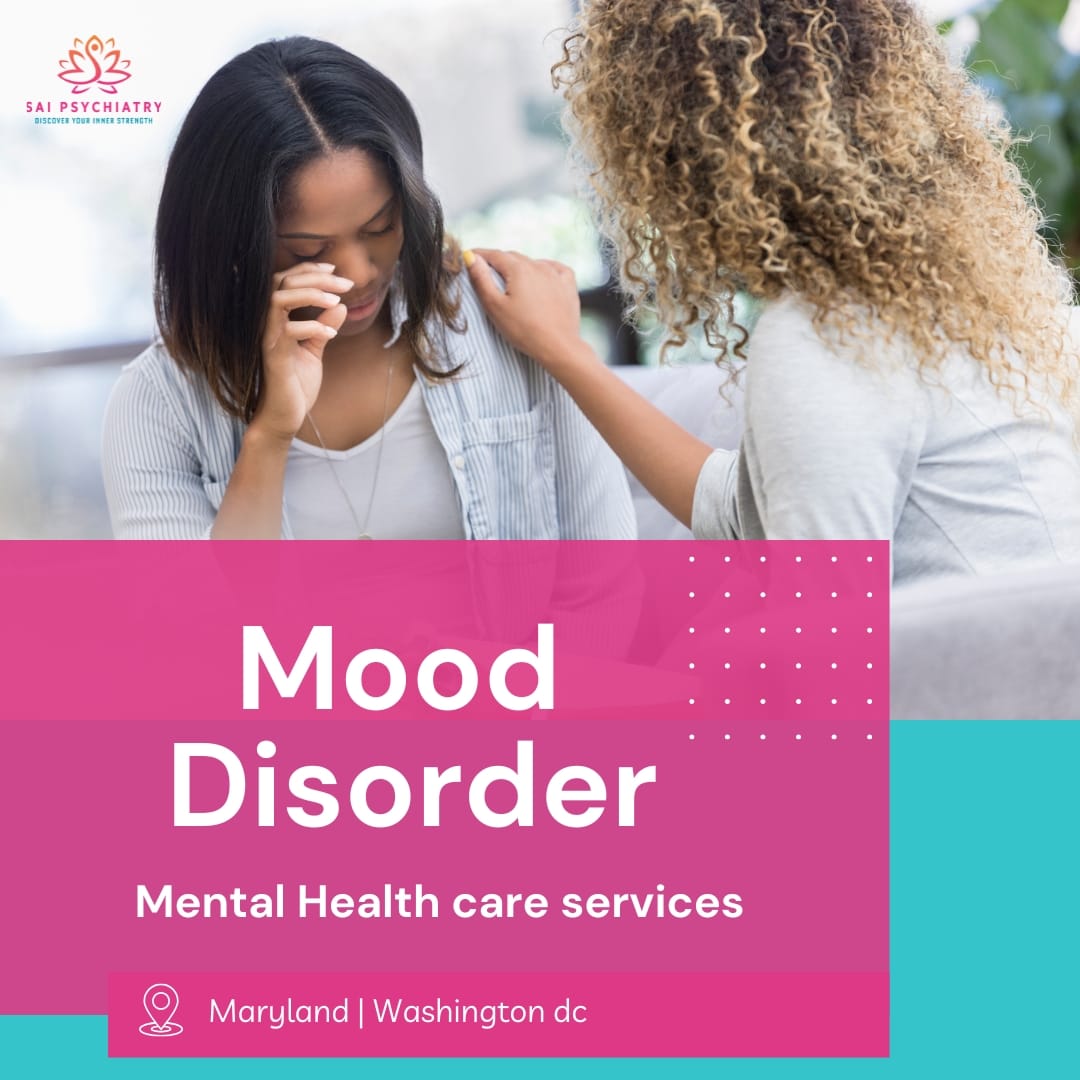Anxiety disorders are prevalent mental health conditions that can significantly impact daily life. At Sai Psychiatry, we specialize in diagnosing and treating various anxiety disorders, including Generalized Anxiety Disorder, Social Anxiety Disorder, and Panic Disorder. This blog aims to provide an informative overview of these conditions, their symptoms, causes, treatment options, and effective coping strategies.
Anxiety disorders encompass a range of conditions characterized by excessive fear or worry. The most common types include:
Generalized Anxiety Disorder (GAD):
Individuals with GAD experience persistent and excessive worry about various aspects of life, often accompanied by physical symptoms such as restlessness and fatigue. Common triggers include uncertainty and daily stressors.
Social Anxiety Disorder (SAD):
This disorder involves an intense fear of social situations where individuals may feel judged or scrutinized. People with SAD often avoid social interactions due to fear of embarrassment.
Panic Disorder:
Characterized by recurrent panic attacks—sudden episodes of intense fear that can include symptoms like heart palpitations and shortness of breath. These attacks can lead to significant distress and avoidance of situations where they might occur.
Symptoms of Anxiety
Recognizing the symptoms of anxiety is crucial for seeking help. Common symptoms include:
- Restlessness or feeling on edge
- Fatigue
- Difficulty concentrating
- Irritability
- Sleep disturbances
- Physical symptoms such as muscle tension or headaches
Causes of Anxiety Disorders
The causes of anxiety disorders are multifaceted and can include:
- Genetics: A family history of anxiety can increase the likelihood of developing an anxiety disorder.
- Brain Chemistry: Imbalances in neurotransmitters may contribute to anxiety.
- Environmental Factors: Stressful life events or trauma can trigger anxiety disorders.
At Sai Psychiatry, we offer a variety of anxiety treatment options tailored to individual needs:
- Therapy: Cognitive Behavioral Therapy (CBT) is particularly effective for anxiety disorders. It helps individuals identify and change negative thought patterns.
- Anxiety Medication: Medications such as SSRIs (Selective Serotonin Reuptake Inhibitors) and SNRIs (Serotonin-Norepinephrine Reuptake Inhibitors) are often prescribed as first-line treatments. Other options include benzodiazepines for short-term relief and beta-blockers for specific situations like performance anxiety.
- Lifestyle Changes: Regular exercise, a balanced diet, and mindfulness practices can significantly reduce anxiety levels.
Coping Strategies for Anxiety
In addition to professional treatment, implementing coping strategies for anxiety can empower individuals:
- Mindfulness and Meditation: Practicing mindfulness helps ground you in the present moment.
- Deep Breathing Exercises: Techniques such as diaphragmatic breathing can calm the nervous system.
- Support Networks: Connecting with friends, family, or support groups provides emotional support.
Childhood Anxiety Disorders
Anxiety is not limited to adults; children can also experience anxiety disorders. Common types include separation anxiety disorder and generalized anxiety disorder in children. Early intervention through therapy and parental support is crucial for helping children manage their anxiety effectively.
Conclusion
Understanding anxiety disorders is essential for effective management and recovery. At Sai Psychiatry, we are dedicated to providing comprehensive psychiatric care tailored to your needs. Our team of expert psychiatrists is here to listen and collaborate with you on a personalized treatment plan that fosters healing and growth.





 Copyright © 2024 Sai Psychiatry. All Rights Reserved.
Copyright © 2024 Sai Psychiatry. All Rights Reserved.